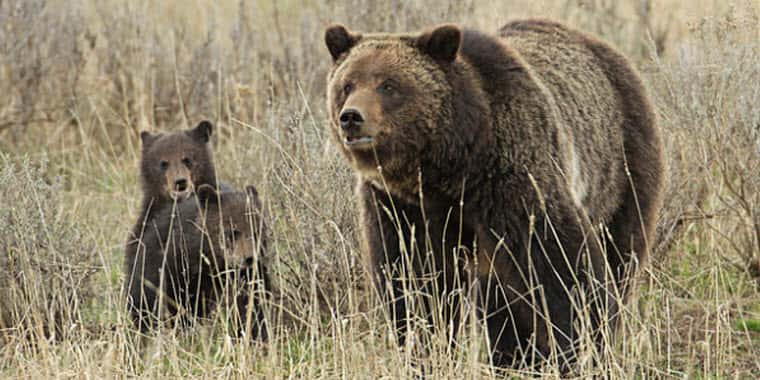Western Landowners Alliance (WLA) is working with livestock producers from across the Intermountain West to help USDA understand the need for cost-sharing programs to assist producers with predator conflict prevention methods.
WLA is asking producers in western states that deal with large carnivores on their operations to sign on to a letter to the Natural Resources Conservation Service (NRCS) Western Region State Conservationists that communicates the need for adoption of such cost-sharing programs.
WLA says that NRCS conservation programs like EQIP and CSP offer a pathway for production adoption of conflict prevention (non-lethal) practices. The adoption of an Interim Practice Standard would provide for further implementation and evaluation of proven prevention tools like range riding, carcass management and fencing. These practices, the letter says, have utility in addressing wildlife habitat, livestock production and range management resource issues that influence predation risk management.
The letter discusses the Four C’s to Conflict Reduction, a systems-based framework that supports both livestock production and wildlife conservation. The framework addresses the ecological, economic and social needs of diverse communities dealing with livestock-predator conflict by means of Compensation, Conflict prevention (non-lethal), Control (lethal) and Collaboration.
“Western working lands provide a broad suite of ecosystem services,” the letter reads. “The sustained provisioning of these landscapes in the context of today’s world, which supports an increasing number of predator species, is dependent upon economically-viable and socially-accepted management approaches that improve ecological function. As landowners and managers, we look forward to the opportunity to work with our local NRCS field offices to continue to steward land, livestock and wildlife on the West’s working wild landscapes.”
Trina Jo Bradley ranches in Valier, MT and is one of the producers that helped craft the letter.
“Historically, producers have been on their own for conflict prevention practices.” Bradley say. “So we’ve looked to state agencies, USDA Wildlife Services, and non-governmental organizations. But there’s no consistency, there’s very little funding, so what we’ve been having to do as producers is decide how much money we’re going to invest in prevention, because we’re basically on our own.”
“So what we’re trying to do with NRCS is make these [predator conflict prevention] methods, an accepted practice, through EQIP or whatever program they decide on. So you can apply and say I need conflict prevention, I need an electric fence around my calving lots. In theory there will be accepted practices through NRCS that you can apply for and you’ll know exactly what you can do, exactly what you’re getting and NRCS will be in charge of it.”
Bradley says ranchers already have to shoulder the burden of expanding populations of large predators through stress, lost livestock, the expense of prevention practices and other indirect costs.
“We can’t afford to lose livestock to predators, we can’t afford the stress that predators put on our livestock, and we certainly can’t afford the extra cost of having to put up fences or buy livestock guardian dogs, or carcass removal programs. We don’t have the time or the money to do all of those things and we shouldn’t have to. As producers, we shouldn’t have to manage these predators because they’re not ours to manage,” Bradley says.
She encourages any interested ranchers to read the letter and said their name, ranch name and the state they live in to add it to the letter.
“The more signatures that we can get the better,” she says. “Because then we can prove to NRCS that this is really important and all of these people agree it is really important. Definitely ever single person that lives in these western states, especially Montana and Wyoming, needs to support this letter.”
To read the letter and sign on to it, click here.
###
Northern Ag Network


